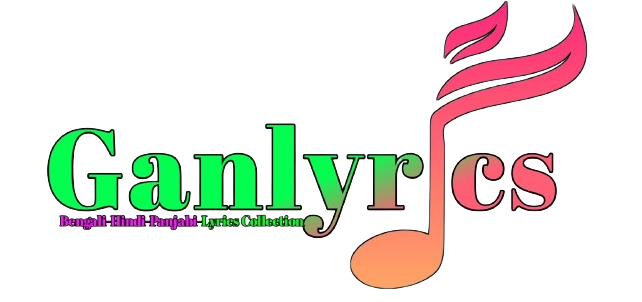Bukvalno Lyrics by Arafat is a latest Croatian song in the voice of Arafat. Its music too is composed by singer while brand new Bukvalno song lyrics are also written by Arafat. This is a popular song among the people of United States of America. The song *Bukvalno* by Arafat is a sharp, introspective take on modern life, money, and societal pressures, delivered with a mix of swagger and frustration. Arafat reflects on financial struggles, shady dealings, and the exhausting cycle of chasing success while trying to stay true to oneself. He critiques a world obsessed with appearances, debts, and control, while stressing the importance of focusing on your own path. The recurring bukvalno emphasizes his direct, no-nonsense perspective, making the song feel both personal and relatable in its honest depiction of navigating today’s challenges.
Bukvalno Lyrics
[Uvod]
(Pope, ovo je prštalica)
[Strofa 1]
Nikad nisam tripovao Holivud
Nikad nisam hteo budem klovn
A potrošio sam pare koje pričaju da prave ovi što pušili su da budu za stolom
Sad od vesti pratimo samo finansije
U današnje vreme svoje pare teško sakriješ
Pa zlato iz Afrike premesti do Azije
A do Australije nestaće tona platine
I nema potrebe za poređenjem
A zna se dobro ko se ovde bavi rukovođenjem
Pare može razne, a može I homogene
Pesme volim uglavnom onda kada pogode me
Izvinite na sekund, ali posô zove (Posô zove)
Osećaš neki umor, jesi ponô štone?
A mora nešto I da ostane za pokoljenje
Pa se na telefon javljam pronto tutto molto bene
[Refren]
Muka mi da neke ljude slušam
Bukvalno trudim se da svoja posla gledam
Bukvalno kome ste vi platili taj porez?
Bukvalno revizija, mora ispočetka
Bukvalno svesni ste da dugujete pare
Bukvalno previše serija se gleda
I jedino šta ostaje na kraju
Je da moliš Boga da je neka greška
[Strofa 2]
Panamski papiri, bankarski vampiri
Gospodski maniri su lopovski maniri
Svi su na vanili, drogerija – Lilly
Neko može da vam otme sve, al’ ne bi da se sili
Nekad jako odradimo kopre (Kopre)
Dugi prsti, ko je mladi Šopen? (Ko je?)
Jebô avion, daj helikopter (Daj ‘vamo)
Da nas odmah vozi do Majorke (Aj-aj)
Niste dobro shvatili zadatak (Amigo)
Najskuplji na svetu je podatak (Amigo)
Šta ćeš sad kad banu ti na vrata? (Hola)
Ne znaš, al’ sa parama si kratak (Aha)
Nema veze što te niko ne zna
Kad si mrtav, nema veza što si zvezda
Nema veze, ja uzeću sve sam
Radim svoje, pa pogledam na kalendar
[Refren]
Muka mi da neke ljude slušam
Bukvalno trudim se da svoja posla gledam
Bukvalno kome ste vi platili taj porez?
Bukvalno revizija, mora ispočetka
Bukvalno svesni ste da dugujete pare
Bukvalno previše serija se gleda
I jedino šta ostaje na kraju
Je da moliš Boga da je neka greška
Bukvalno Lyrics Meaning
[Uvod]
This line sets the tone, signaling an intense and impactful track.
[Strofa 1]
The artist begins by rejecting superficial dreams of fame and Hollywood-style illusions. He emphasizes staying true to himself, contrasting this with those who spend big just to fit in with elites. The focus shifts to financial realities, highlighting how wealth moves globally, from African gold to Asian markets, and resources like platinum disappearing. He critiques the difficulty of hiding money in today’s world and underscores how power structures are evident in who controls finances. He admits to finding solace in music that resonates deeply with him, even while attending to responsibilities. A quick aside about staying connected (“posô zove”) shows the grind never stops. Ultimately, he stresses leaving something meaningful behind for future generations, all while juggling life’s demands with a composed mindset.
[Refren]
The chorus reflects frustration with shallow people and unnecessary chatter. Arafat focuses on minding his own business, calling out questionable tax practices and endless audits. He criticizes a culture obsessed with TV series while debts and financial obligations pile up. In the end, all that’s left is to pray mistakes can be rectified, hinting at a lack of control over larger systems.
[Strofa 2]
Arafat dives into themes of corruption and greed, referencing the Panama Papers and shady banking practices. He equates polished manners with deceitful behavior, showing how appearances can mask dishonesty. He critiques consumerism and subtle exploitation, while hinting at resilience and adapting to challenges (“kopre”). The desire for freedom and escape surfaces, symbolized by a helicopter to Mallorca. He touches on the value of information in today’s world, warning about the consequences of being unprepared when accountability comes knocking. He reflects on legacy, pointing out that fame and recognition don’t matter after death. The verse ends with a focus on taking control of his own destiny, emphasizing hard work and awareness of fleeting time.
[Refren]
Reiterating his disdain for unnecessary distractions, Arafat stresses staying focused on personal growth and responsibilities. He calls out systemic flaws like unpaid debts and bureaucracy, and critiques escapism through media consumption. The chorus closes with a plea for mistakes to be just errors, highlighting the uncertainty and powerlessness many feel in a flawed system.
FAQs
Q. Who has sung Bukvalno song?
A. Bukvalno song is sung by Arafat.
Q. Who wrote Bukvalno lyrics?
A. Bukvalno lyrics are penned by Arafat.
Q. Who has given the music of Bukvalno song?
A. Bukvalno music is composed and produced by Arafat.
“This concludes the lyrics of Bukvalno” by Arafat. If you like this song please share it with your friends and family in USA. If you find any errors in it, please feel free to submit the correct version via the Contact Us section.

